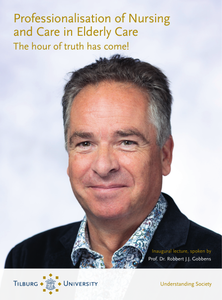Objective. To investigate the feasibility and effects of additional preoperative high intensity strength training for patients awaiting total knee arthroplasty (TKA). Design. Clinical controlled trial. Patients. Twenty-two patients awaiting TKA. Methods. Patients were allocated to a standard training group or a group receiving standard training with additional progressive strength training for 6 weeks. Isometric knee extensor strength, voluntary activation, chair stand, 6-minute walk test (6MWT), and stair climbing were assessed before and after 6 weeks of training and 6 and 12 weeks after TKA. Results. For 3 of the 11 patients in the intensive strength group, training load had to be adjusted because of pain. For both groups combined, improvements in chair stand and 6MWT were observed before surgery, but intensive strength training was not more effective than standard training. Voluntary activation did not change before and after surgery, and postoperative recovery was not different between groups (P > 0.05). Knee extensor strength of the affected leg before surgery was significantly associated with 6-minute walk (r = 0.50) and the stair climb (r - = 0.58, P < 0.05). Conclusion. Intensive strength training was feasible for the majority of patients, but there were no indications that it is more effective than standard training to increase preoperative physical performance. This trial was registered with NTR2278.
DOCUMENT
Inaugural lecture, delivered upon public acceptance of the endowed professorship in Professionalisation of Nursing and Care in Elderly Care by Prof. Dr. Robbert J.J. Gobbens at Tilburg University on 29 September 2023.
DOCUMENT

Home rehabilitation after a hip operation can be daunting for the elderly. Lack of motivation to exercise and being insecure in the recovery process are common barriers. Personalized eHealth can help to ensure that the patient exercise efficiently, filling the gap between treatment in the practice with the physical therapist and practice at home.
DOCUMENT

The pressure on the European health care system is increasing considerably: more elderly people and patients with chronic diseases in need of (rehabilitation) care, a diminishing work force and health care costs continuing to rise. Several measures to counteract this are proposed, such as reduction of the length of stay in hospitals or rehabilitation centres by improving interprofessional and person-centred collaboration between health and social care professionals. Although there is a lot of attention for interprofessional education and collaborative practice (IPECP), the consortium senses a gap between competence levels of future professionals and the levels needed in rehabilitation practice. Therefore, the transfer from tertiary education to practice concerning IPECP in rehabilitation is the central theme of the project. Regional bonds between higher education institutions and rehabilitation centres will be strengthened in order to align IPECP. On the one hand we deliver a set of basic and advanced modules on functioning according to the WHO’s International Classification of Functioning, Disability and Health and a set of (assessment) tools on interprofessional skills training. Also, applications of this theory in promising approaches, both in education and in rehabilitation practice, are regionally being piloted and adapted for use in other regions. Field visits by professionals from practice to exchange experiences is included in this work package. We aim to deliver a range of learning materials, from modules on theory to guidelines on how to set up and run a student-run interprofessional learning ward in a rehabilitation centre. All tested outputs will be published on the INPRO-website and made available to be implemented in the core curricula in tertiary education and for lifelong learning in health care practice. This will ultimately contribute to improve functioning and health outcomes and quality of life of patients in rehabilitation centres and beyond.
A feeling of worry, anxiety, loneliness and anticipation are commonplace in both medical and non-medical arenas such as elderly care. An innovative solution such as the ‘simple and effective’ comfyhand would offer better patient care and improved care efficiency with a high chance of long-term, economic efficiency. ComfyHand is a start-up in the healthcare sector that aims to develop sustainable products to improve patient wellbeing in healthcare settings. It does this by emulating the experience of holding a hand which gives the person comfort and support in moments where real human contact is not possible. Right now the comfyhand is in the development phase, working on several prototypes for test trials in elderly care and hospitals. In this project we want to explore the use of 3D printing for producing a comfyhand. Desired properties for the prototype include optimal heat transfer, softness, regulation of sweat, durability and sustainability. The goal of this study is to develop a prototype to test in a trial with patients within Envida, a care centre. The trial itself is out of scope of this project. This proposal focuses on researching the material of choice and the processability. Building on knowledge gained in a previous Kiem GoChem project and a Use Case (Shape3Dup) of a currently running Raak MKB project (Enlighten) on 3D printing of breast prostheses, several materials, designs and printing parameters will be tested.
De centrale onderzoeksvraag is: "Hoe kunnen familieleden van oudere oncologie patiënten optimaal betrokken worden in het besluitvormingstraject rondom de behandeling?". Dit wordt onderzocht vanuit 3 perspectieven: de oudere oncologie patiënt zelf, de familieleden en de zorgprofessional (verpleegkundigen, artsen en andere betrokken zorgprofessionals). In een combinatie van kwalitatief en kwantitatief onderzoek wordt op verschillende momenten in het besluitvormingstraject (voor/tijdens en/of na de behandeling en/of opname) gekeken naar de rol van familieleden en factoren die van invloed zijn op deze rol.